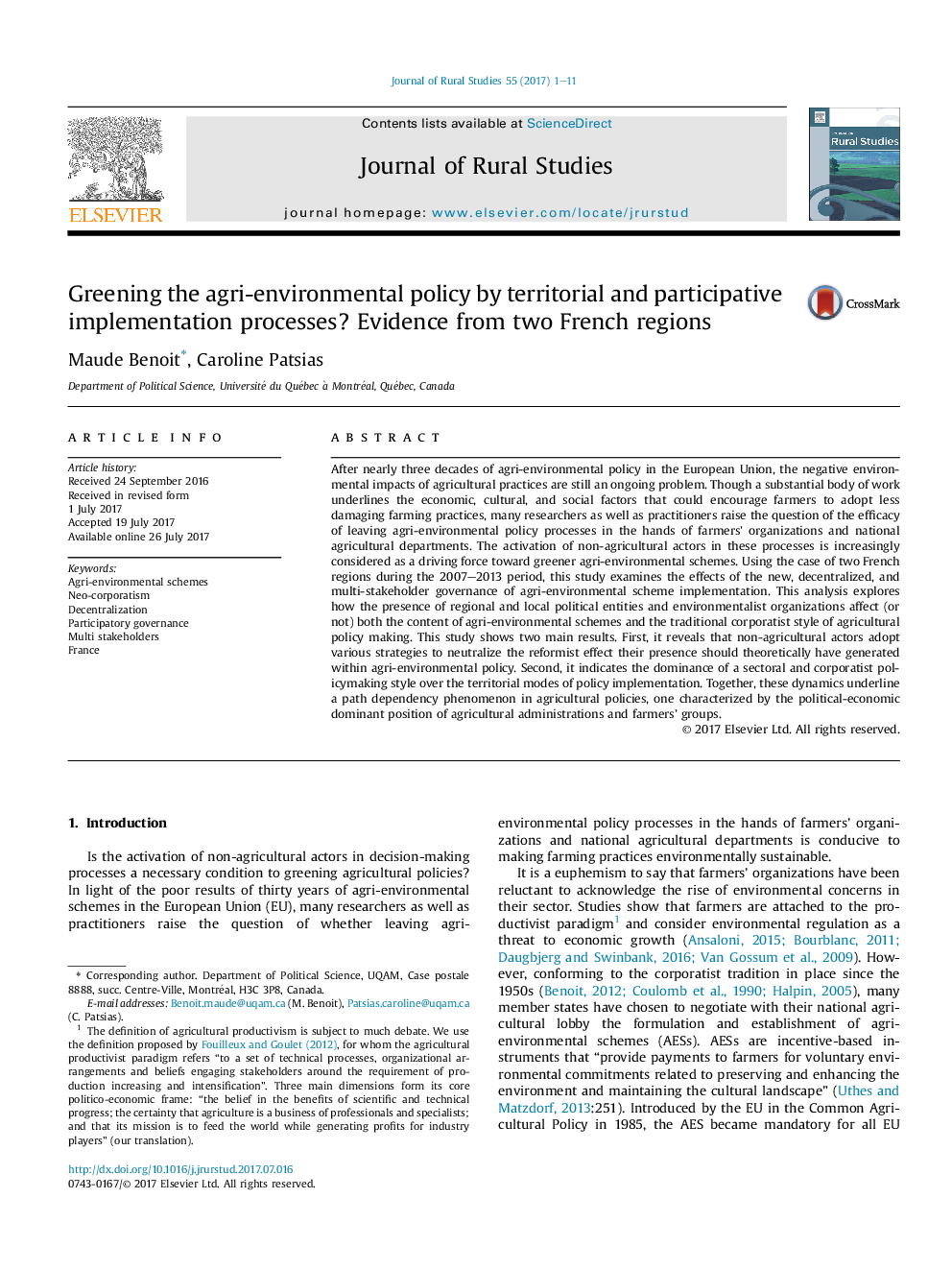| کد مقاله | کد نشریه | سال انتشار | مقاله انگلیسی | نسخه تمام متن |
|---|---|---|---|---|
| 6459927 | 1421776 | 2017 | 11 صفحه PDF | دانلود رایگان |
- Non-agricultural actors' presence does not lead to “greener” agri-environmental schemes (AES).
- These actors adopt various strategies that neutralize the reformist effect they should theoretically have generated.
- A strong corporatism among all the agricultural players hinders the emergence of new collaboration.
- A path dependency principle seems to apply in French AES, but politico-institutional changes could alter this in the future.
After nearly three decades of agri-environmental policy in the European Union, the negative environmental impacts of agricultural practices are still an ongoing problem. Though a substantial body of work underlines the economic, cultural, and social factors that could encourage farmers to adopt less damaging farming practices, many researchers as well as practitioners raise the question of the efficacy of leaving agri-environmental policy processes in the hands of farmers' organizations and national agricultural departments. The activation of non-agricultural actors in these processes is increasingly considered as a driving force toward greener agri-environmental schemes. Using the case of two French regions during the 2007-2013 period, this study examines the effects of the new, decentralized, and multi-stakeholder governance of agri-environmental scheme implementation. This analysis explores how the presence of regional and local political entities and environmentalist organizations affect (or not) both the content of agri-environmental schemes and the traditional corporatist style of agricultural policy making. This study shows two main results. First, it reveals that non-agricultural actors adopt various strategies to neutralize the reformist effect their presence should theoretically have generated within agri-environmental policy. Second, it indicates the dominance of a sectoral and corporatist policymaking style over the territorial modes of policy implementation. Together, these dynamics underline a path dependency phenomenon in agricultural policies, one characterized by the political-economic dominant position of agricultural administrations and farmers' groups.
Journal: Journal of Rural Studies - Volume 55, October 2017, Pages 1-11
